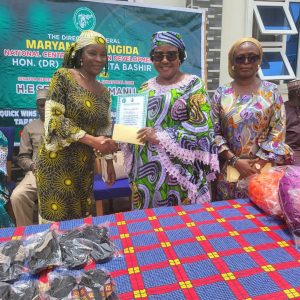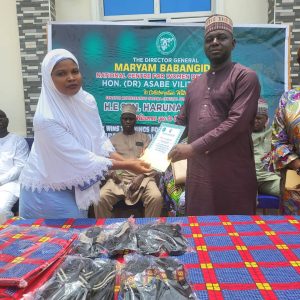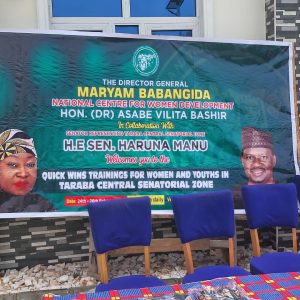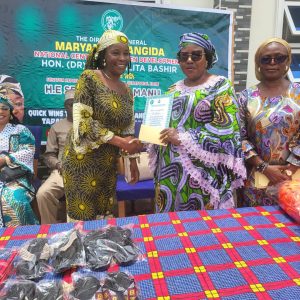News
Nigeria has no military pact with France, says Ribadu

The National Security Adviser, Nuhu Ribadu, has refuted claims that Nigeria was involved in any military cooperation with France.
According to him, the country’s relationship with the European nation was strictly economic.
Ribadu spoke during an interview with BBC Hausa, monitored by our correspondents on Friday.
Ribadu’s comment followed an allegation made by Niger’s military junta leader, Gen. Abdourahmane Tchiani, who accused Nigeria of allowing France to use its territory as a staging ground for destabilising Niger.
Speaking during the interview, Ribadun dismissed the allegation, describing it as baseless and implausible, saying it was an attempt to strain relations between the two nations.
Ribadu said it was unreasonable for Nigeria to sever ties with France over Niger’s internal disputes.
He said, “Nigeria has no history of hosting foreign military bases. Even our former colonizer, the United Kingdom, has never established a base here. We have consistently resisted such attempts, including from the United States.
“In contrast, Niger has hosted foreign bases, including one by the U.S., which they recently expelled. Our relationship with France has always been about economic cooperation, not military collaboration. While Niger’s leadership may have issues with France, it is unreasonable to expect Nigeria to sever ties with France over Niger’s internal disputes.
“Once again, I emphasise that Nigeria’s relationship with France is strictly economic and has no military implications. We will not allow our country to be used as a tool for destabilising Niger. We hope that Niger’s leadership will understand this and work with us as allies and brothers to ensure peace and stability in the region.”
Ribadu said Nigeria was committed to peaceful coexistence with its neighbours, citing long-standing amicable relations with countries like Chad, Benin Republic, and Cameroon.
“Nigeria has no intention of sabotaging or destabilising Niger. We have always maintained peaceful relations with our neighbours, including Cameroon, Benin Republic, and Chad. Why would we suddenly have a reason to be in conflict with Niger? It simply doesn’t make sense,” NSA said.
News
Just in: Gunmen invade pro-Wike group in Bayelsa
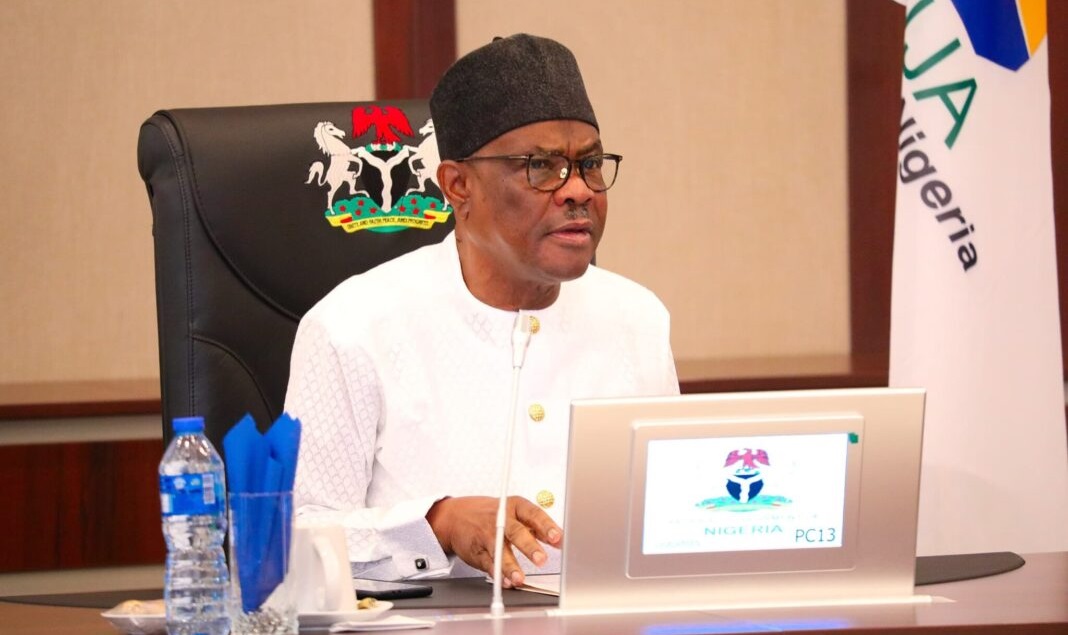
Gunmen suspected to be hired political thugs disrupted a rally organised in support of Minister of the Federal Capital Territory, Nyesom Wike, on Saturday in Yenagoa, Bayelsa State.
The event, which also marked the inauguration of the NEW Associates group, was meant to thank President Bola Tinubu for appointing sons and daughters of Bayelsa into positions in his administration, while also showing support for Wike, who serves as the group’s grand patron.
Originally scheduled for April 12, the rally had been postponed to April 26 after another group, supporters of Governor Douye Diri, booked the same venue and date for their own rally.
Although both groups eventually rescheduled, tensions remained high.
Supporters of NEW Associates had gathered early at the Church of God Mission Camp, ready for the event, when armed men suddenly emerged from nearby creeks and bushes, firing gunshots into the air.
The crowd quickly scattered in fear, while security forces including the Nigeria Police, the Nigeria Security and Civil Defence Corps (NSCDC), and the Department of State Services (DSS) responded by pushing back the attackers and searching the surrounding area to prevent further violence.
After the incident, Comrade Ebilade Ekerefe, Secretary of NEW Associates and former spokesperson of the Ijaw Youths Council, accused the state government of trying to disrupt their peaceful gathering.
He insisted the rally would go on, stating that their intention was simply to express gratitude to the President and show solidarity, and questioned why anyone would feel threatened by such an event.
Similarly, Dr Pabara Igwele, the immediate past Commissioner of Health in Bayelsa, described the rally as peaceful and blamed the disruption on political motives.
He also vowed that the rally would continue despite the attack.
After the initial chaos, supporters regrouped to carry on with the event.
News
Senator Manu Haruna Launches Quick Wins Training for Women and Youths in Taraba Central Senatorial District+Photos
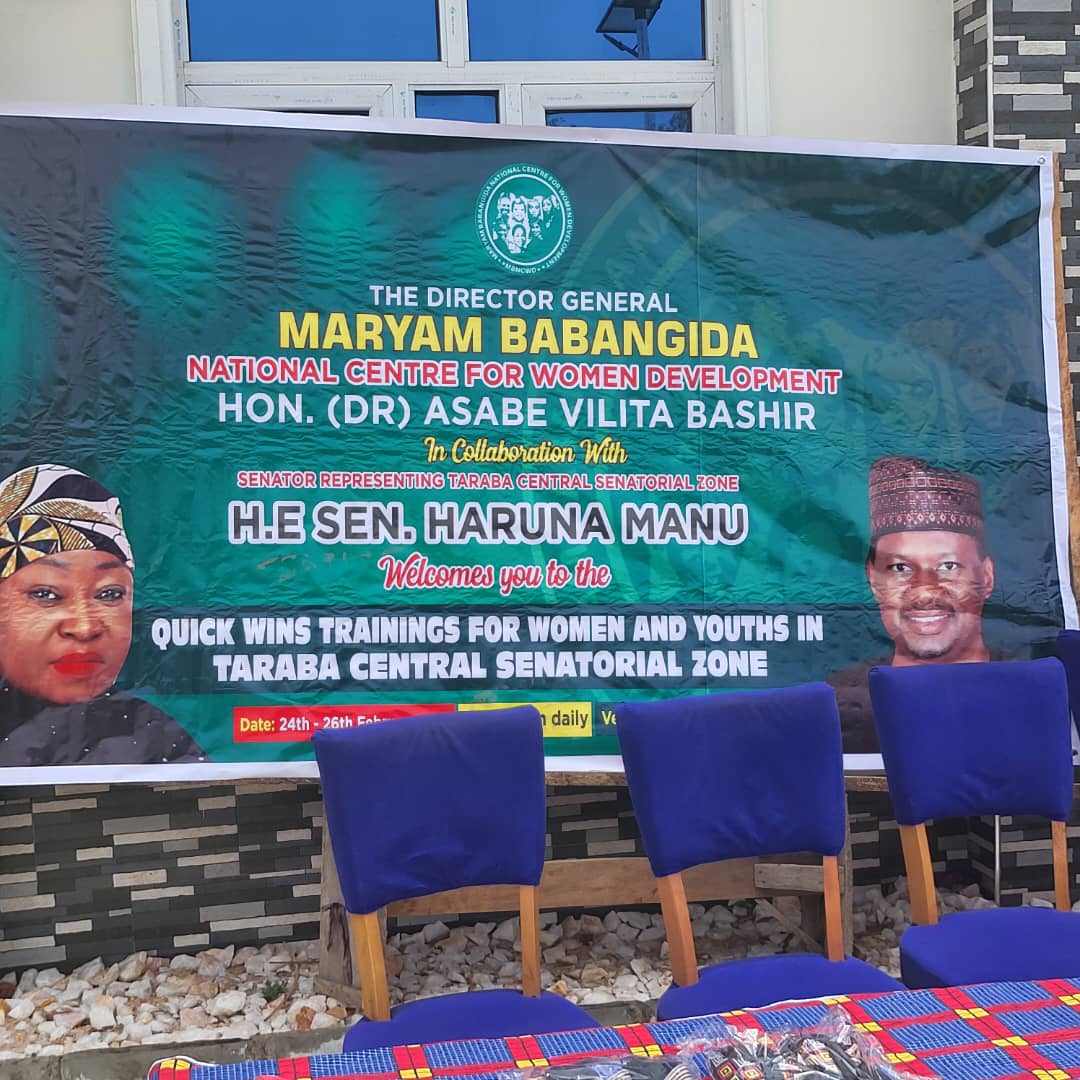
Senator Manu Haruna of the Taraba Central Senatorial District on Saturday concluded a three-day Quick Wins Training program dedicated to empowering women and youths in the District .
The event took place in Jalingo, the capital city of Taraba State, in collaboration with the Maryam Babangida National Centre for Women Development.
The training initiative is aimed to equip participants with practical skills and knowledge that can foster economic independence and stimulate community development. This program is a reflection of Senator Haruna’s commitment to improving the socio-economic status of underrepresented groups within his constituency.
The event was attended by prominent leaders, including Hon. Veronica Alhassan, Member of the House of Assembly for Bali I Constituency, and Hon. Alhassan Hamman, who presented certificates to participants on behalf of Senator Manu Haruna.
The involvement of critical stakeholders underscored the importance of collaboration between government officials and community leaders in driving sustained progress in Taraba Central.
Among the distinguished attendees were Hon. Ubale Gambo, Hon. Bala Baba, Alhaji Muhammad Nagaggo, Alhaji Raubilu Umar, among others, all of whom are dedicated to fostering development within the region.
Senator Manu Haruna expressed his gratitude to the National Centre for Women Development and all partners involved in the initiative.
He stressed the transformative potential of empowering women and youths, noting the necessity for continued support and resources to ensure sustainable growth in Taraba State.
This Quick Wins Training is poised to have a long-lasting impact on participants, equipping them with essential skills to make valuable contributions to their communities and the broader economy of Taraba State. By investing in the future of these underprivileged groups, the program seeks to inspire change and promote self-sufficiency among the local populace.
News
Baptist Convention to Tinubu: Convene National Security Summit Immediately
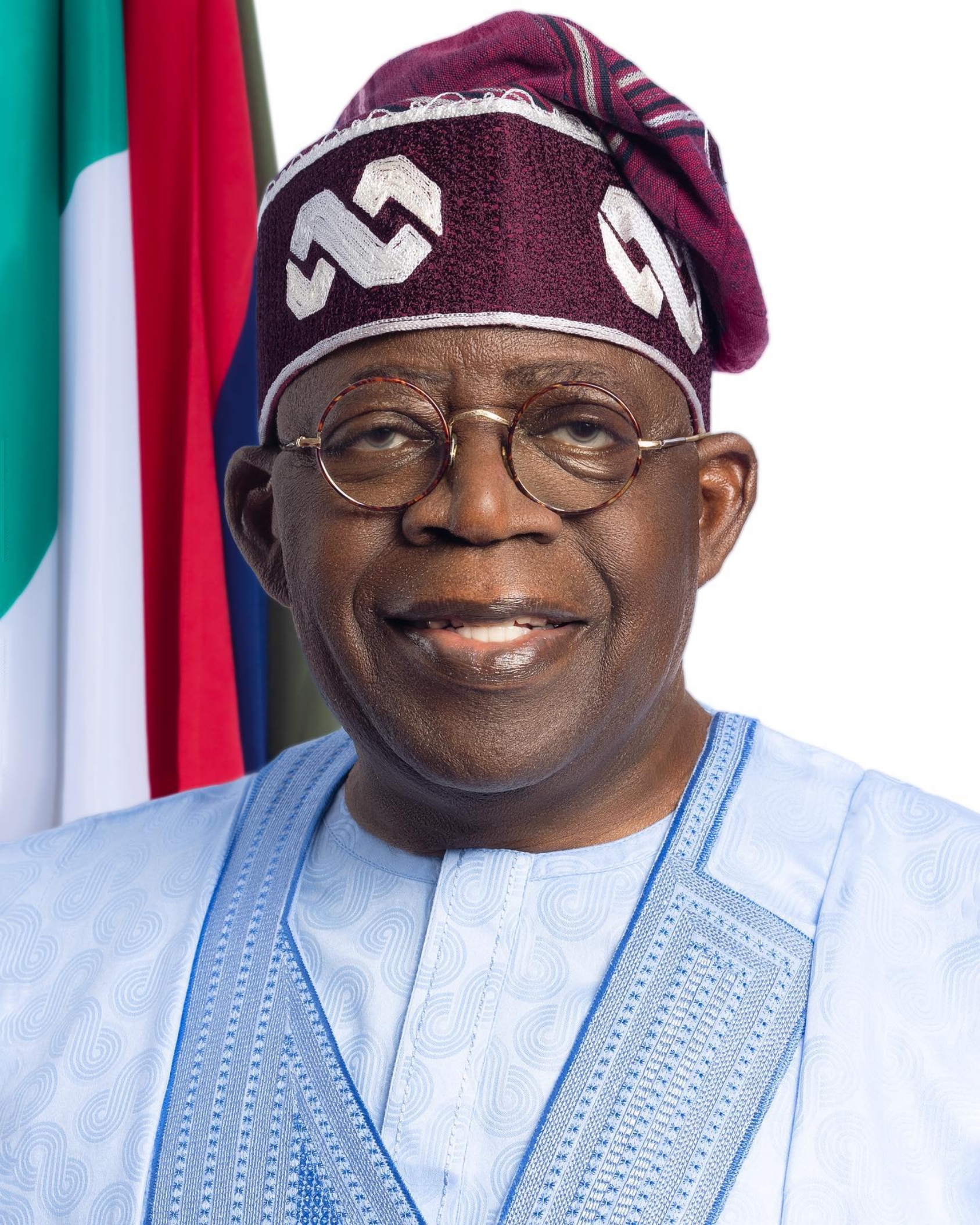
Disturbed by the resurgence spate of insecurity across the nation, the Nigerian Baptist Convention (NBC) has urged President Bola Tinubu to urgently convene a national security summit.
The proposed summit, according to the Convention, should bring together former Presidents, Heads of State as well as current and past security chiefs to chart a new course for tackling the worsening security crisis.
Speaking at a briefing ahead of the Convention’s 112th Annual Session and the 175th anniversary of Baptist missionary work in Nigeria, President of the Convention, Rev. Dr. Israel Akanji, said the proposed summit should include the Minister of Defence, Service Chiefs, the Inspector General of Police and heads of intelligence agencies.
He decried the deepening insecurity across the nation, citing recurring incidents of mass killings, kidnappings, and terrorist attacks in Plateau, Benue, Katsina, Zamfara, and Borno states.
He said: “The spate of mass burials in Bokkos, Barkin Ladi, Bassa, and other communities is deeply disturbing and unacceptable. This is not the time for lip service.”
He reiterated the Convention’s call for the creation of State Police, insisting that the current centralized policing model is inadequate for Nigeria’s security needs.
While noting some improvements in foreign investment inflow, he called on the government to intensify efforts to make Nigeria more attractive to investors.
Speaking on the convention with the theme: “Entering into Newness through Fasting and Prayer,” the NBC Convention President said the event will open Saturday, April 26 at the Baptist International Convention Centre along the Lagos-Ibadan Expresswayand and hosted by the Providence, Ethiope, and Anioma Delta Baptist Conferences.
Akanji also extended condolences to the Roman Catholic Church over the passing of Pope Francis, who died on Easter Monday, April 21, 2025, in Vatican City, a day after delivering his Easter message. “What a glorious exit,” he said.
The Nation reports that, the Nigerian Baptist Convention was established as a national body on March 11, 1914 during a meeting at First Baptist Church, Idikan Street, Ibadan.
-
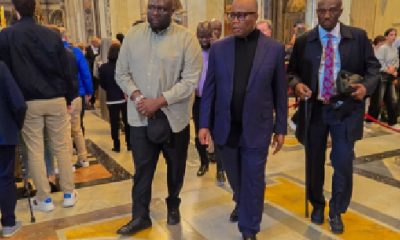
 News11 hours ago
News11 hours agoAkpabio arrives Vatican ahead Pope’s funeral
-

 News4 hours ago
News4 hours agoList of World Leaders that are present in the final funeral of Pope Francis
-

 News8 hours ago
News8 hours agoDefections: Teejay Yusuf traces genesis of PDP palaver, key issues affecting Nigeria’s largest opposition party
-

 News21 hours ago
News21 hours agoRivers State is yet to fully stabilise– Ibas
-
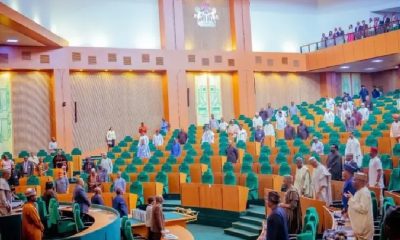
 News24 hours ago
News24 hours agoOsun PDP Reps Dismiss Defection Claims, Pledge Support for Adeleke
-

 News10 hours ago
News10 hours agoCBEX: EFCC declares four persons wanted over crypto fraud + photos
-

 News10 hours ago
News10 hours agoScandal! Osun monarch, pastor admit to COVID-19 fraud in US
-

 News21 hours ago
News21 hours agoWhy we shut down MTN operation in Kogi owing to non compliance – Govt














